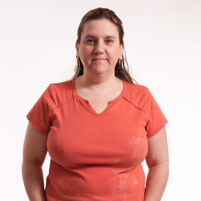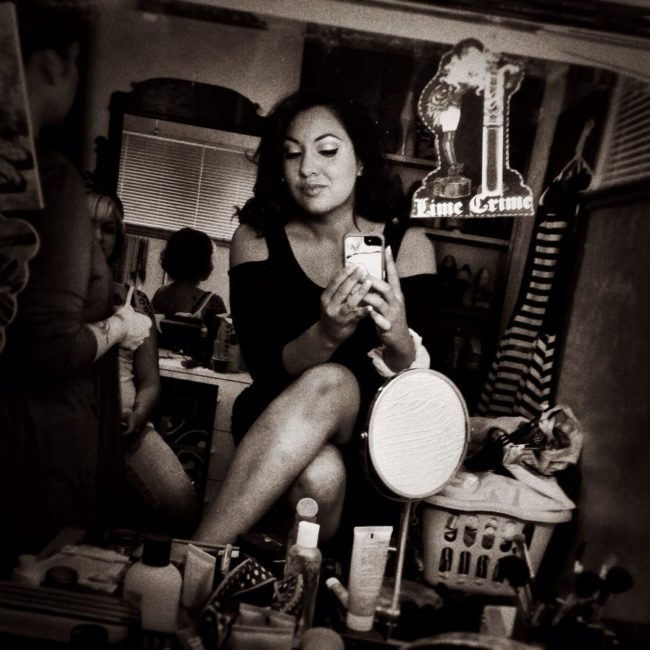Last updated on September 13th, 2019 at 04:12 pm
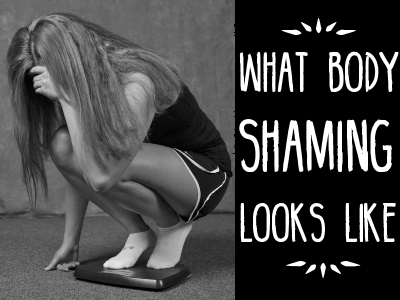 Today I want to talk about a subject that can have a significant impact on your self-esteem and your big dream journey. Possessing confidence in who you are and accepting yourself is an essential aspect of dream success and achieving goals.
Today I want to talk about a subject that can have a significant impact on your self-esteem and your big dream journey. Possessing confidence in who you are and accepting yourself is an essential aspect of dream success and achieving goals.
Body-shaming and fat-shaming are at epidemic proportions now that more people are living their lives online. One of the most extensive polls on the issue of body-shaming, for the UK charity, Mental Health Foundation found one in eight people aged 18 and above have been so distressed about their body image they have thought about killing themselves. (Source: Guardian News)
You can see how body-shaming can negatively impact someone’s life, let alone feel secure enough to take even one small step towards achieving a dream.
Because body-shaming carries so much power to shut women down negatively, I want to share the stories of a handful of women, representative of untold numbers of people in the world what body-shaming looks like and how you can help.
My dream to help women gain confidence through being photographed is most often about helping to repair an unhealthy body image. In my social circle and with clients, I try to untie the devastating knots that were created by a few harsh words from family, friends, lovers, and even strangers. Body-shaming tends to stick with you, and the hopelessness becomes entwined with who you believe you are as a worthy person.
It’s important to talk about what body-shaming looks like so that you can unravel the injured pieces of your heart and let this awful crap go.
When it comes to body-shaming, age doesn’t matter. Thin doesn’t matter; curvy doesn’t matter. Body-shaming is a symptom of a more significant issue: judgment. And learning to keep an outside evaluation from polluting your soul, you must learn to base your self-esteem on something inside yourself versus someone else’s conclusion. It’s your work to let go of whatever their negative issues are and find your real beauty inside yourself.
A friend of mine, Christine posted the following on Facebook.
No joke–if one more ‘trainer’ compliments me then proceeds to say ‘I could help you reach your weight loss goals,’ I’m gonna flip. I’m 191 pounds, have a 36D bust, wear a size eight jeans, have an ass, and I’m proud. I exercise for my health, not the scale–feeling pissed the fuc* off.”
She responded to the trainers simply, “I got this.” I’m so proud of her! I’m not sure I could have been as brief or eloquent. Her story is an example of what body-shaming looks like.
Approaching someone and assuming they’re not happy with their body is body-shaming. It’s a different situation entirely if someone seeks out a trainer to work towards fitness goals, but it still doesn’t give someone the right to talk about the shape of your body.
Christine trains to cultivate a strong body. I admire her fitness objectives. She wrote:
I am not training for Ironman, I want muscle. I love it. I like being able to leg press 225lbs and the kick the soccer ball the length of the field. I’m not training to lose weight, I’m training for strength and advantage on a soccer field. I’m happier when I am strong. I don’t want anyone to ever assume I want to be thin because that is not my goal.”
Upon reading her post and the responses, I decided to put a call out on my Facebook feed for firsthand accounts of body-shaming from my followers and how each person moved past it.
I was not prepared for the avalanche of submissions and comments. It was heartbreaking.
A young woman, Desirae, who is mostly off of Facebook due to the hateful and shaming posts. Her response is one you hear too often. Past abuse starts a negative record that her brain records and plays over again whenever she is triggered. She’s working hard to overcome it. She candidly describes her feelings:
In fact, at a size 6, I am lean and still “technically” 25 lbs overweight. My very loving and supportive boyfriend has told me if I get any thinner I am going to be too thin. I feel mentally, physically, and emotionally more in charge. But I still feel “fat, disgusting, and worthless.” I can’t seem to get away from the microscope view I have of myself, regardless of how beautiful everyone around me views me to be (and it has always been that way). It’s painful and it makes me feel deep shame about myself. Despite the fact that I work hard, and my work is very accurate and respectable, I find myself shaming myself just in general.”
It’s like everyone has an opinion. I tend to agree with the negative words even though I exude confidence on the outside. I am constantly battling with myself, the humility, and the plague of my past. I have licked the wounds of my sexual abuse. I’m doing the hard spiritual/mental/emotional work to get to where I am. I’m not perfect but I find it peaceful that I am capable of having a healthy physical/emotional/mental relationship with my boyfriend. I feel very safe with him and for the first time ever I will walk around in my underwear or naked. I find this a huge milestone for me. Above all things, it’s empowering and I feel like the missing piece of my womanhood is in place.”
I don’t care if this is anonymous because I’m happy to share. These things are important, deeply and sincerely important.”
Another respondent, Didi, experienced young boys at a mall laughing and saying obscenities to her in front of her toddler for being overweight. She struggles to do things like go shopping because she feels so much pressure for being overweight. I feel for her. This is the time that people need empathy. I didn’t lose 100 pounds overnight. The beginning was painful and lonely.
Didi describes what she felt after the boys laughed at her:
Once they were out of sight I grabbed the shopping cart and my daughter, checked out, and left. I went straight home ignoring the other errands I needed to do. I felt so humiliated and defeated. I had thought I had come so far and yet I was so easily shaken. It wasn’t until the next day that I realized I have come a long way. Before I learned to soothe myself and my fears I would have: Cried. Cried for hours and destroyed me worse than they had. I would have ripped myself apart and taken the blame for their actions. I would have hurt myself.”
She did the most fantastic part of this work. She chose to let their actions say more about them than her.
I now feel stronger and more confident in my mind and body because I did not allow it to hurt me. I may not have stood up for myself to them, but I feel I stood up for myself against myself.”
Honestly, there’s nothing she could have said to change the boy’s behavior. She has no control over them. But she has control over herself, and I’m so very proud that she loved herself through the bullying experience.
Body-shaming isn’t limited to shaming people who are ‘overweight.’
Body-shaming is a double-edged sword that attacks the thin body type too. I was surprised when I received three times as many body-shaming story submissions from skinny women. I’ve spent a long time giving curvy women a voice when I should have been focusing on all women. I did not mean to leave out thin women. I saw the world through the lens of my personal experience.
I was taken aback when my beautiful and talented cousin Olivia, who has always been naturally thin, recounted:
I’ve found that I’m often made to feel guilty that I’m naturally thin, and that since I’m thin, I’m not allowed to have anybody issues or be self-conscious.”
I can remember going shopping with friends in high school. In high school everyone is self-conscious. Everyone was complaining about the difficulties of shopping for their body. I joined in, saying I have a hard time finding clothes that fit, and complained that there are certain trends I can’t wear (like strapless shirts), and I was immediately shot down. “Ugh, but you’re so skinny, I hate you!” That really stuck with me.”
When I asked how she’s overcome it, she said:
I think I’ve changed my view of what’s flattering. I don’t base it necessarily on trends (though I do love fashion and trying new trends), but I’m learning to embrace my body and be more confident no matter what I put on. It helps to talk to people who have similar body types and share secrets like “that one store with the jeans that actually fit!”
If I enjoy what I’m wearing, then that should be good enough. I actually have found that I get more compliments, especially in the past few years, since I started being a bit bolder and dressing for myself!”
I agree with her. The more I focus on clothes that fit me and less on fashion trends, the better I feel.
Linda, a fantastic photographer, shared how she was body-shamed:
I was thin all my life until I hit 50. Even as a child of the 50s and 60s (when everyone was much thinner than they are now) I was considered skinny. I can’t tell you the times I was asked by adults if I had worms. How embarrassing!”
As a young adult people would greet me with, “I hate you, you’re so skinny,” and think it was fine. How about, “I hate you because you’re so pretty?”
My daughter is built similar to me and came home from junior high crying when someone wouldn’t give her a cookie. They didn’t want to because they didn’t think she needed to go throw it up. Anorexia and bulimia were terms to be thrown around to explain her body type then.”
These comments are just as damaging. People have to stop talking about bodies this way. Weight and body type don’t make a person. Actions, empathy, and humanity make you who you are.
Jenny is someone who’s strength and beauty in pole dancing would take your breath away. She may be small, but I promise your jaw would hit the floor to see her perform. She shared:
I posted an article very recently about things you should never say to a thin girl. I’m constantly being guilted for being thin. I find myself having to apologize to people because I’m thin and they aren’t. If I act proud of my body people act disgusted with me.”
First. Jenny, stop apologizing. You shouldn’t have to. You’re beautiful. And strong!
Another pole dancing athlete, Nina, revealed:
When I saw my mom for the first time in 2.5 years after moving to the US, she told me I should eat more and stop working out so much because I looked “scraped thin” (bad translation). Not cool, especially since I eat a lot and she knows it.”
But Nina has a firm sense of self. After I told her that her body does incredible things she said,
Oh, I know that! My ego/confidence is strong enough that no one’s going to tell me otherwise!”
Nichole’s experience is similar to many thin women:
I’ve always been told that I’m too skinny or that a man wants a woman with some meat on her bones. I always took it with a grain of salt, but in the back of my mind there is always that little voice of doubt.”
Body-shaming is body-shaming. Whether your body is so-called Hollywood-perfect or you are a strong famous athlete, it’s still body-shaming. Women are alarmingly quick to normalize this kind of negative talk.
Society has made it normal to make fun of someone’s appearance. Shame is so pervasive in our culture; you don’t even realize the impact mere words have on your life.
I have to confess that sharing these women’s stories has been more difficult than I imagined.
There were moments while writing this story, where I stopped and simply stared at the screen. I pondered if I had chosen a career building confidence in women that is only a single grain of sand against a raging sea of body image negativity. Would my pontifications ever make a difference? I’ve spent almost 14 years working on self-esteem issues with the women I come in contact. I don’t save my passion for wanting women to love themselves just for my clients. I live and breathe my calling. I help every woman I meet from the women in the store dressing rooms next to me to the women I meet at parties.
I share my healthy body-image enthusiasm with every woman I overhear saying something disparaging about themselves.
My battle against body-shaming seems overwhelming. Writing this article, collecting women’s stories, and reading the heartbreaking Facebook comments–knowing that so many women aren’t able to enjoy their bodies scares me. I may not be having an impact on this epidemic.
The world needs your help with the issue of body-shaming. Stop saying bad things to yourself. Stop your friends and family members from saying bad things about their bodies (and yours). This one-woman photographer can’t do it alone.
Body-shaming can change. Help. Share these women’s stories. Say something kind to yourself today. Just one beautiful, uplifting thing shifts the conversation from comparison to reveling in the beauty of the human body. All forms are perfect. At every stage, you’re perfect. I don’t care what size or age or skin firmness you are. You’re perfect.
Imagine me saying that to you through the computer screen in my most imploring voice.
You ARE perfect.
And you deserve to achieve your big dream regardless of how people and society try and make you feel about the miraculous human container carrying you through your one blessed life.
Iman Woods
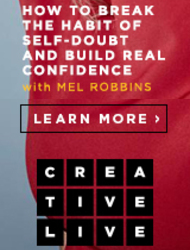 | 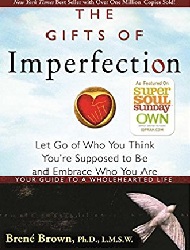 | 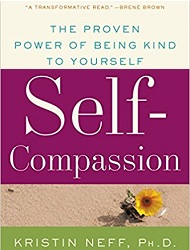 |
|---|

Iman Woods is an American artist who specializes in pin-up photography. Through a unique and therapeutic process, she’s spent over a decade in perfecting, Iman helps women undo the damage from a negative self-image and unrealistic beauty industry expectations. She helps women embrace their own style of beauty and see themselves in a new light. You can find her on her website, ImanWoods[dot]com.
Note: Articles by Iman may contain affiliate links and may be compensated if you make a purchase after clicking on an affiliate link.

